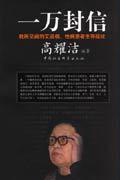




HONG KONG -- China's government, much criticized for its head-in-the-sand attitude to the HIV/AIDS epidemic, says it has launched a turnaround policy aimed at ending discrimination and treating the disease as a major social problem.
"From denying AIDS as an issue to putting it top of the government work agenda, the Chinese government has fortified its resolve against AIDS," the official Xinhua news agency said in an unusually frank commentary released on World AIDS Day Dec. 1 in Beijing.
Most observers -- including Xinhua -- plot the turnaround in official attitudes to AIDS from President Hu Jintao's visits to AIDS patients, with whom he shook hands, at the end of 2003.
Hu's initiative breathed fresh life into official apathy in the face of growing drug use, illegal blood-selling, lack of sex education, poverty and other social conditions which favor the spread of HIV/AIDS.
In Beijing, a student at the China Youth College for Political Science told RFA that the Communist Party-affiliated college had come up with its own education program for AIDS prevention this year.
"The purpose of our propaganda campaign is to educate people about the fact that women are being infected at a rate that is three or four times faster than men," the student told RFA's Mandarin service.
The most important component of the AIDS care and concern program is the provision of free medicines to sufferers, and this was born out of social conflict.
"They have published a lot of material about the protection of women and set up links with other institutions so their students will read them too," she said.
The end of 2003 marked a turning point in China's battle against AIDS. Under pressure from activists at home and the international community, the health ministry admitted that China had more than one million known cases of HIV/AIDS, and that the rate of infection constituted a major health problem.
Since then, the government has begun implementing policies aimed at caring for those infected with HIV/AIDS, such as free medical treatment for AIDS patients and free schooling for China's growing body of AIDS orphans.
"The most important component of the AIDS care and concern program is the provision of free medicines to sufferers, and this was born out of social conflict," Beijing-based independent AIDS activist Hu Jia told RFA. "But the government still hasn't really admitted that AIDS is already a massive social problem in this country, or that it is now an emergency."
"This provision of free medicines is a first step towards recognizing how bad things are. There are AIDS patients in Henan who have to think twice before turning over in bed in case it induces fainting and vomiting, let alone carrying on a normal life," Hu said.
Gao Yaojie, Traditional Chinese medicine doctor from Henan, told RFA in a recent interview that illegal blood-selling was still commonplace in most Chinese cities and provinces, but is never reported.
In Yaogu, Shen county and Yuecheng in Shandong province...there were about 100 people I saw selling blood...they've been doing it for many years.
Gao said she had recently discovered three counties in the northern coastal province of Shandong which had been hit by the blight of blood-selling and AIDS infections.
"In Yaogu, Shen county and Yuecheng in Shandong province...there were about 100 people I saw selling blood...they've been doing it for many years," Gao told RFA.
China's cabinet, the State Council, set up an AIDS task force headed by high-profile vice-premier Wu Yi, and issued a circular in March 2004 urging concrete measures to strengthen AIDS prevention and control work.
But activists say that the television pictures of Hu and other Chinese leaders shaking hands with AIDS patients did more to change the political will to deal with the problem than any number of top-level directives.
International research has shown that high levels of social inequality and discrimination in a society are frequently found alongside high rates of HIV/AIDS infection.
At a national conference on AIDS prevention and control in April, Wu said China needed to build an effective AIDS prevention and control mechanism with the government playing a dominant role and society participating.
Soon after, the health ministry joined forces with law enforcement agencies to crack down on illegal blood-selling, which has reached disastrous proportions in the poorer inland regions of the country, especially Henan.
China will have between 138,000 and 260,000 AIDS orphans by the end of 2010.
In a major embarrassment for the government in July, authorities in Henan closed down a school set up by non-governmental activists for AIDS orphans, whose parents contracted the virus from selling blood in government-backed schemes in the 1990s that have caused a major epidemic in China's countryside.
And in August, a group of 78 AIDS orphans on a summer camp in Beijing were turned away from several hotels in the capital out of ignorance about the disease.
China's Center for Disease Control and Prevention predicts the country will have between 138,000 and 260,000 AIDS orphans by the end of 2010.
According to a recent survey, only 8.7 percent of Chinese people are fully aware of how HIV is transmitted. Some 25 percent of rural residents have never even heard of the virus, according to the survey conducted by Futures Group Europe and Beijing-based Horizon Research Group.
The survey also found that few people express caring attitudes and acceptance for those infected by HIV or living with AIDS. Only 33.9 percent of urban residents and 19 percent of town residents think that HIV carriers should be allowed to continue working.